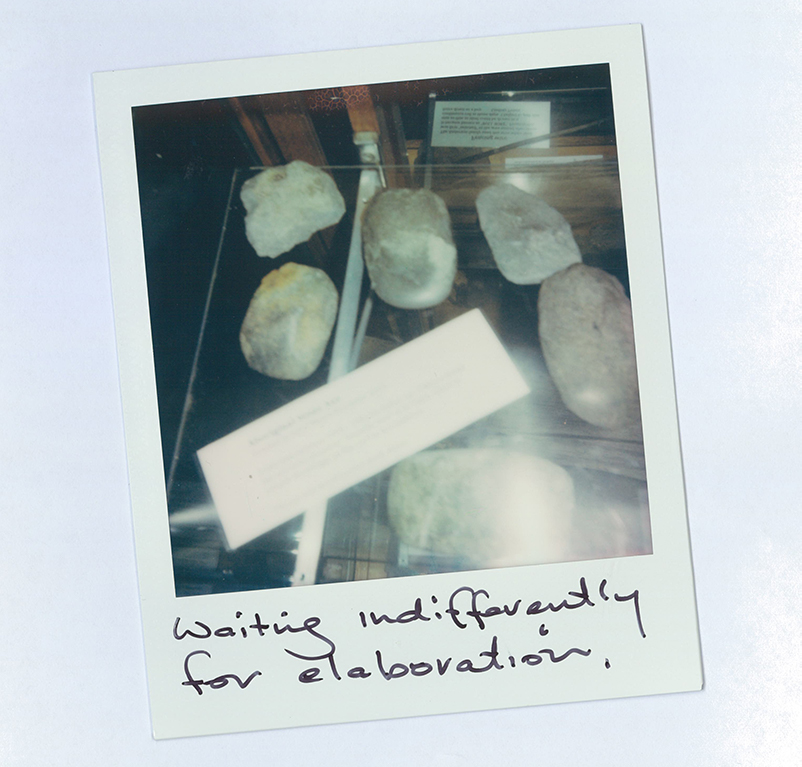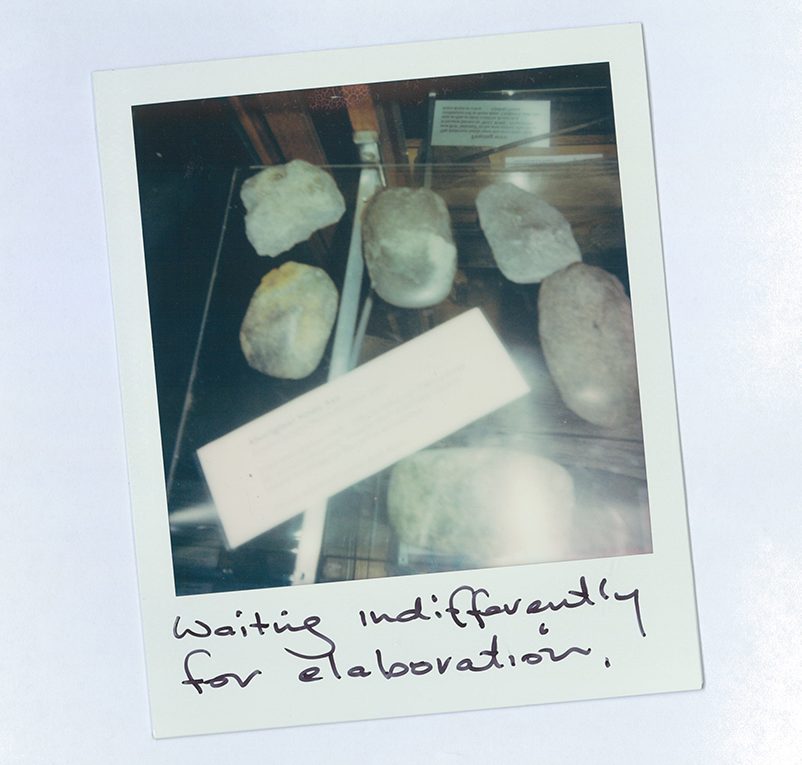Waiting indifferently for elaboration

While acknowledging the speculative nature of all historical suppositions, Greg Dening encourages all students of history to be ethnographic, to ‘describe with the carefulness and realism of a poem what can be observed of the past in the traces that remain’ (Dening, 1998, p. 42).
Evidence of the past – whether found in the landscape itself, in archival records, in people’s memories, or somewhere else – waits indifferently for elaboration. The writing and reflections of others prompts us to question, cross-examine and elaborate on the remnants of the past.
In my quest to better know the Bunurong Coast and its histories, I often find myself revisiting a particular place or object armed with a newspaper clipping or a scrap of paper containing contextual information.
Sometimes I read aloud, sometimes I just sit, think and jot the occasional reflection, note or provocation in my notebook.
Revisiting my notes, photographs and recordings, sometimes months or years later, I sort, review and catalogue. In this archive – an assemblage that encompasses artefacts collected and created by me as well as records copied or scrounged from other collections – I search for themes, patterns or just a striking detail.
